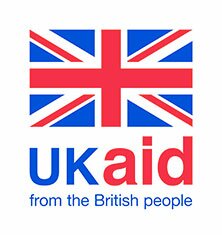Resource centre
Brief: Towards shock-responsive social protection: lessons from the COVID-19 response in Kenya
This policy brief summaries the key findings and recommendations from the Kenya country case study on the social protection responses to COVID-19. The brief provides an analysis of the key enablers and constraints to the effective delivery of the social protection response in Kenya. The brief also provides recommendations and actions to enhance preparedness for future shocks, including developing an institutional framework to guide the design, implementation and coordination of future shock responses.
Towards shock-responsive social protection: lessons from the COVID-19 response in Kenya
This study documents the Government of Kenya’s social protection response to mitigate the negative impact of the pandemic on vulnerable households and presents an analysis of the factors that enabled and constrained the effectiveness of the response, at the policy and operational levels. We find that the Government of Kenya was able to achieve impressive coverage through various social protection interventions but that a coherent response was undermined by a weak coordination mechanism, poor functionality of the Single Registry and the need to target new populations, not typically covered by routine social protection programmes.
Seven recommendations for building the climate shock-responsiveness of Kenya’s health system
The formal health system of the ASALs of northern Kenya must respond to surges in demand for health and nutrition services associated with recurrent climate shocks- especially drought and flood events – which are increasing in frequency. This policy brief presents seven recommendations from our working paper on how the health system at county level prepares and responds to climate shocks, from research undertaken in Marsabit, Turkana, and Wajir. These recommendations aim to stimulate national policy dialogue and change to build the climate shock-responsiveness of Kenya’s health system.
This brief was authored by Matt Fortnam, Peter Hailey, and Nancy Balfour
Opportunities of, and obstacles to, the utilisation of the Enhanced Single Registry
As part of the Ministry of Labour and Social Protection’s activities to transform the National Safety Net Programme into a responsive, harmonised social protection programme, an Enhanced Single Registry (ESR) is being developed that will function as a social registry. The purpose of this research is to ensure that the views and needs of the potential users of the ESR at the county (and national) level are reflected in its design so that the ESR will be used to deliver social protection (and other) programmes, including during times of shock. Overall, we find great enthusiasm about the concept of the ESR and, drawing on our findings, provide recommendations for the design and roll-out of the ESR.






